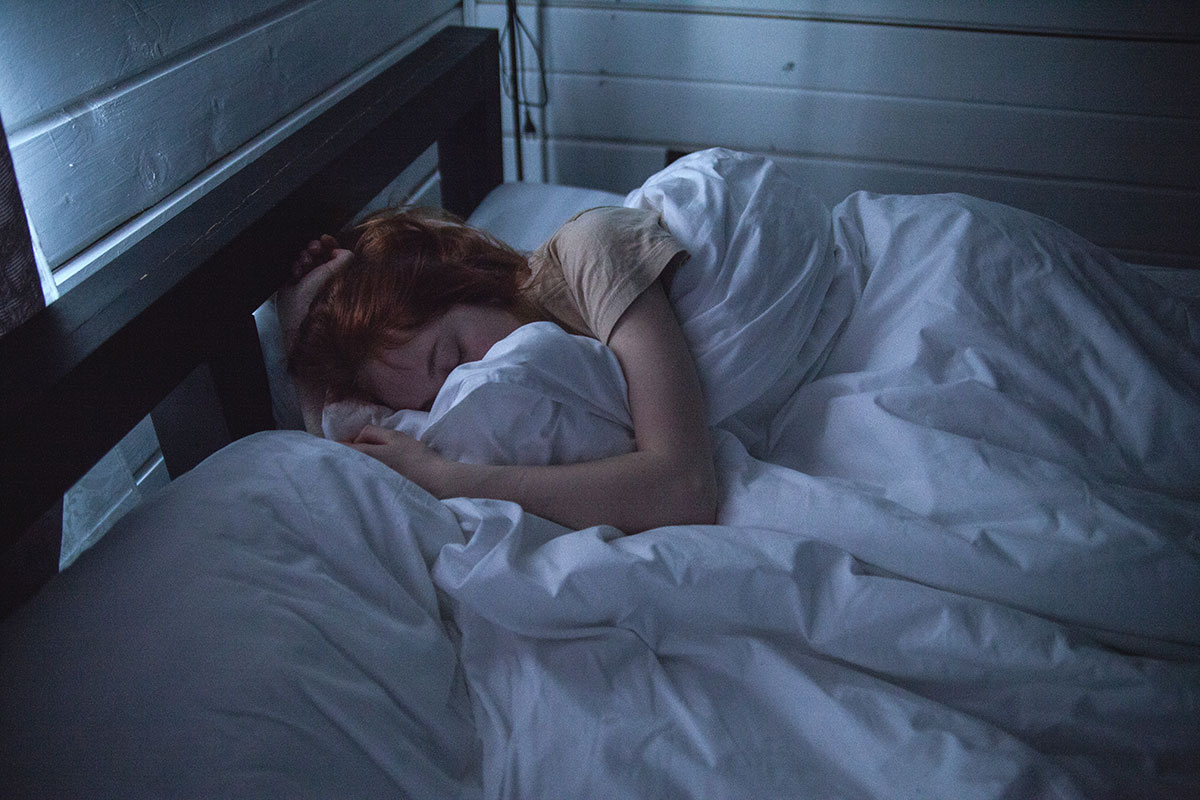

New SA lab targets sleep disorder solutions

Getting enough sleep is a problem for more than 1.5 million Australians – with many more experiencing at least one bad night’s rest a week.
Now a new $4 million high-tech centre in Adelaide has become the first in the world to allow for a full range of human sleep research, bringing much needed support to combat the rising tide of chronic sleep disorders.
It’s estimated sleep disorders and inadequate or poor sleep affects about 40% of the Australian adult population, costing more than $60 billion in lost productivity and loss of wellbeing every year.*
The Flinders University Adelaide Institute for Sleep Health (AISH) – opening at new and bigger premises at the Sir Mark Oliphant Building in Bedford Park – sets a new standard for researchers to conduct a wide range of sleep experiments including:
- intricate physiological measurements of breathing and brain activity,
- sleep deprivation studies, and
- acoustic experiments on the effects of night-time environmental noise such as traffic or even wind turbines on sleep.
The modern centre will combine with the clinical respiratory and sleep diagnostic services at Flinders Medical Centre to create Australia’s biggest clinical and sleep research facility.
AISH director, Matthew Flinders Professor Danny Eckert, works on finding much-needed and targeted treatments for sleep apnoea, which affects more than 1 million Australians every night.
Professor Eckert’s latest research is challenging the notion that sleeping pills hinder rather than help people with sleep apneoa.
“Sleep apneoa can lead to various health problems including diabetes, cardiovascular diseases, obesity, high blood pressure, impaired cognitive function, decreased quality of life and patients are more likely to be involved in motor vehicular accidents,” he says.
“Our current studies show that certain drugs may both aid in sleep and reduce the main cause of sleep apneoa, that is the obstruction of the airway around the throat area.”
More than 40 experts from many fields of sleep health will come together in spacious facilities (900 sq m) including dedicated research and laboratory spaces and six specially configured bedrooms to conduct live-in sleep deprivation and circadian experiments.
“The institute is a Flinders Centre of Research Excellence, widely recognised as a world leader in sleep health,” says Professor Eckert, who previously led the NSW Neuroscience Research Australia centre.
Founded by luminaries such as sleep apnoea expert NHMRC Practitioner Fellow Professor Doug McEvoy and circadian researcher Professor Leon Lack who invented Re-Timer glasses, the AISH continues to break new ground since starting in 2002.
“Sleep is the third pillar of health alongside diet and exercise, but is something many of us can’t control,” says Professor Eckert. “Although it’s challenging in today’s 24-hour society, we can choose to change our diet, undertake more exercise and make more time for sleep.
“However, getting restorative sleep can be a real problem if we are one of the 1.5 million Australian adults who suffer from a sleep disorder such as insomnia or sleep apnoea – or if there are environmental causes such as external noise, shift-work, jetlag or a medical considitions such as back pain.”
The AISH houses the National Centre for Sleep Health Services Research, funded by a $2.5 million NHMRC Centres of Resesarch Excellence grant, and an NHMRC Career Fellowship awarded to Dr Andrew Vakulin.
AISH Medical Director, Professor in Respiratory and Sleep Medicine Robert Adams, says the work being undertaken at the Adelaide Institute for Sleep Health is very important, “both on our individual health and the impact on the economy”.
“Regular good sleep is essential for good health, safety and performance,” says Professor Adams, a specialist respiratory and general physician with extensive experience in public health, clinical epidemiology and health services research.
“Sleep problems are often complex and require specialist services for diagnosis and management.
“Ongoing research is urgently needed to provide evidence-based guidance towards more efficient and cost-effective practices to better manage the remarkably common and costly community burden of untreated and often undiagnosed sleep problems across the community,” Professor Adams says.
The total cost of diagnosed sleep disorders to Australia’s economy every year is about $31 billion in disability-adjusted life-year costs and a further $5.1 billion annually through the adverse effects of poor sleep on traffic and work accidents and related physical and mental health (# Deloitte Access Economics, ‘Re-awakening Australia: The economic cost of sleep disorders in Australia,’ 2010).
EDITORS: The Adelaide Institute for Sleep Health’s new facility will be officially opened on Friday 15 February, 2019. Formalities start at 10am; official opening at 10.30am; tours and interviews from 11am. Sleep experiments can be organised for media before upon request.
About the Adelaide Institute for Sleep Health
Based at newly refurbished facilities at the Mark Oliphant Building at Flinders University, 5 Laffer Drive, Bedford Park science park. Adelaide Institute for Sleep Health scientists are working on world-leading research projects in many fields of sleep disorders. Flinders University is a globally focused, locally engaged institution with a reputation for excellence in teaching, learning and research.
Key media contacts:
Name: Tania Bawden, Office of Communication and Engagement, Flinders University
Tel: +61 8 8201 5768
Mob: +61 434 101 516
Email: tania.bawden@flinders.edu.au
W: https://news.flinders.edu.au
*from Deloitte Access Economics ‘Asleep on the job: costs of inadequate sleep in Australia’ Canberra 2017 http://www.sleephealthfoundation.org.au/public-information/special-reports/asleep-on-the-job.html
Recent News
- Blog: Navigating the changing media landscape
- $48M affordable housing hub revives beachside site
- Covid success story: SA digital transformation start-up expands interstate
- Industry leader Mark Smith appointed National Pharmacies CEO
- Mellor Olsson appoints new CEO
- Indonesia AirAsia touches down in Adelaide, enabling affordable connectivity across Asia via Bali
- Playgroup reimagined: Elders and children connect at ACS's Aboriginal aged care home
- Apartment living reaches new heights with $120 million Parkline development topping out
- A Fresh Take on Strawberries: Premium Packaging that Looks as Good as it Performs
- Paper & board packaging leader unboxes new global HQ in Adelaide
- Lutheran Homes Group brings its high-quality aged care to regional Victoria in historic expansion
- Blog: The growing AI threat - what it can mean for your brand and reputation
- CH4 Global named as one of the world’s top Sustainable Development Goal leaders
- Scotch AGS Vietnam’s inaugural SACE graduates go global
- Gen Z and the future of AI
- Qantas international services return to Adelaide
- Blog: Let’s get (a)political: all you need to know about elections and public relations
- The world’s most valuable dog toy revealed in the lead up to Guide Dogs Day
- Skytrax names Adelaide as best regional airport in Australia & Pacific region
- Indonesia AirAsia To Touch Down in Adelaide for the first time in June Fares on sale today starting from just AUD$199*!








